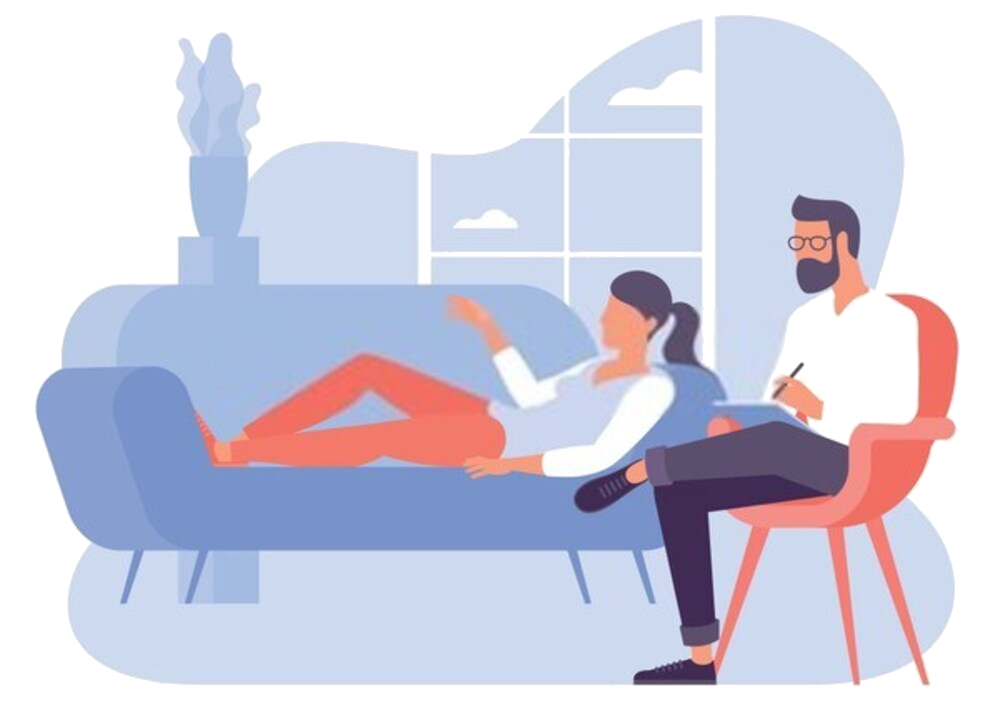Can Counselling Help Depression?
The definitive answer is yes! With commitment and an open mind there are several types of therapy that are proven to help sufferers of depression. With psychological counselling you can increase the your awareness of the potential problems caused, consequences experienced, and risks faced as a result of your behaviour and as a result you can experience a life that is fulfilling, complete and happy.
What are the Psychological Treatments for Depression?
The most important thing to remember is there is treatment available for depression. Depression is a treatable illness and not a character flaw.
- Cognitive Behavioural Therapy for depression
- Behavioural Therapy for depression
- Interpersonal therapy for depression
- Mindfulness-based cognitive therapy for depression
Cognitive Behavioural Therapy for Depression
CBT for depression is a process where your therapist examine the logical relationship between a patients thought processes (cognitive processes) and their behaviour.
When yourself & your psychologist or counsellor have identified the thoughts that are feeding the actions resulting in further depression, together you can begin to rationally address these thoughts and move to a more positive mindset.
Behavioural Therapy for Depression
Behavioural Therapy is used in CBT but stops short of attempting to change the client’s beliefs and attitudes. By encouraging activities that result in rewards and positive feedback, they client begins to seek out the positive experiences more and more and this results in a reversal of the negative patterns that were previously feeding their depression.
Interpersonal therapy for Depression
Interpersonal Therapy for depression also known as IPT is a focused on your personal relationships and the behavioural patterns that result in depression. Many of the problems that exist for the individual stem from a variety of relationships. This can be an individual’s relationship within the community a person lives in or more personal relationship with family members and loved ones. The entire process focuses on how you relate to other people surrounding you in your everyday life. The majority of depression sufferers in this area result from poor social skills which can be improved over time if you’re willing.
Mindfulness-based Cognitive Therapy for Depression
MBCT as it’s also known is usually performed in a group situation. The therapy promotes a focus on the present moment. Mindfulness-based Cognitive Therapy usually starts by focusing on something physical like your breathing and then moves deeper into your feelings and emotions.
MBCT stops your thoughts from wandering off into the possible future situations or past experiences that have no relation to the present. By recognising exactly what your mind is concentrating on right now you can identify these negative thoughts before they become patterns of depression.
Depression Symptoms & Signs of Depression
Depression symptoms may vary from person to person. Some will feel sad, and feeling a sense of hopelessness. Some may overeat and have suicidal thoughts. Another person may feel tired, and get easily annoyed at people, and snap at them without really meaning to. Another person may lose interest in food and in all the things he or she used to find enjoyment in. An older person may be preoccupied with death and dying.
About 10% of people experience depression at any given time. Fortunately, depression is a very treatable illness. Many medications are available and newer medications regularly come to market with fewer side effects than the medications previously available. The earlier you see a psychologist or counsellor and begin treatment, the greater success you will have with the treatment.
- Feelings of sadness
- Loss of interest in activities of daily living
- Feelings of hopelessness
- Feelings of worthlessness
- Feelings of guilt for no reason
- Insomnia
- Sleeping too much
- Crying without cause
- Difficulty concentrating
- Indecisive
- Suicidal thoughts and attempts
Types of Depression
Depression comes in many forms and can often take hold unexpectedly. There are several categories of depression and the episodes can be triggered by a variety of causes. There is also information beginning to surface regarding the effect of diet and gut health on depression.
Major Depressive Disorder
Often simply referred to as Major Depression, sufferers find themselves in continual state of hopelessness. The feelings of despair and sadness begin to overtake their everyday lives and there is a noticeable lack of interest in activities that were once enjoyable.
Suffers of Major Depressive Disorder will often experience overwhelming tiredness, social withdrawal and possibly even physical symptoms.
Bipolar Disorder also known as Manic Depression
People affected by Bipolar often experience very noticeable mood swings. If you suffer from Bipolar you may find yourself going from feeling extremely happy to extremely sad in short periods of time without related causes.
When a diagnosis is reached the patient may need medication to control the excessive mood swings. The good news is that with therapy, suffers of Bipolar go on to lead happy and productive lives.
Postnatal Depression also known as Postpartum Depression
Postnatal depression can affect both men & women and is noticeable in that it will be persistent in the 1st 12 months after the birth of a child. It is commonly mothers who are usually affected and the results can be devastating for both the mother, child and family overall.
Mothers will often experience what is commonly referred to as the “Baby Blues” but usually these symptoms will pass after a couples of weeks. It’s important to seek some form of therapy if these symptoms persist in the 1st 12 months of your child life.
Persistent Depressive Disorder
Persistent Depressive Disorder, previously known as Dysthymia, is slightly different in that it will last for a period of 2 years or more.
Seasonal Affective Disorder
Often affecting suffers during the winter months, it is usually caused by a lack of sunlight and reduced production of Vitamin D.
Psychotic Disorder
Psychotic depression is usually marked by the suffer experiencing extreme symptoms of hallucinations, delusion and paranoia.

